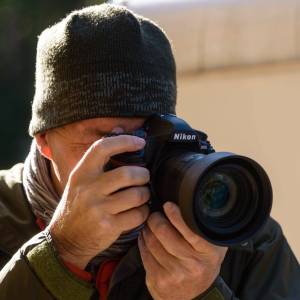Cornflower amongst the Poppies
I was struck by the interview with D-Day veteran Harry Billinge by Naga Munchetty on the BBC Breakfast coverage of the D-Day commemorations in Normandy. I missed it on the day but a review of the coverage brought it to my attention. The single thing that came to me throughout the coverage on the day was our generation's sentiment to the people of his generation who sacrificed so much so that we may resolve the war. 'Thank you' seemed to be the words on nearly every dignitaries lips.
His response was priceless, "Don't thank me. And don't say I'm a hero. I'm no hero. I was lucky because I'm here. All the heroes are dead, and I'll never forget them as long as I live."
I wanted to add these words to my entry today, but needed a photo relevant to the sentiment. Then I remembered a lovely old couple who live not too far away who always plant poppies on the front verge of their small garden. I popped up to capture something symbolic. It also made me wonder whether they were of that generation.
I also looked up why poppies are used to signify remembrance. I know of the poem by John McCrae 'In Flanders Field' but hadn't realised that poppies were the first flower to recolonise the previously beautiful landscapes turned to mud by the warfare; bleak and barren scenes where little or nothing could grow.
In the evening we went over to Shrewsbury to watch an amateur production of The Sound of Music. One of the children, Louisa, was being played by a good friend's daughter. It was thoroughly delightful and the cast were brilliant. Production qualities were exceptional and it would have done credit to a professional troupe. We waited at the end and the daughter was buzzing as she came out of the stage door.
**Postscript**
Veronica has pointed out that in France they use the cornflower as their symbol of remembrance. A little serendipity here as I had absolutely no idea that this was so.

Comments
Sign in or get an account to comment.


